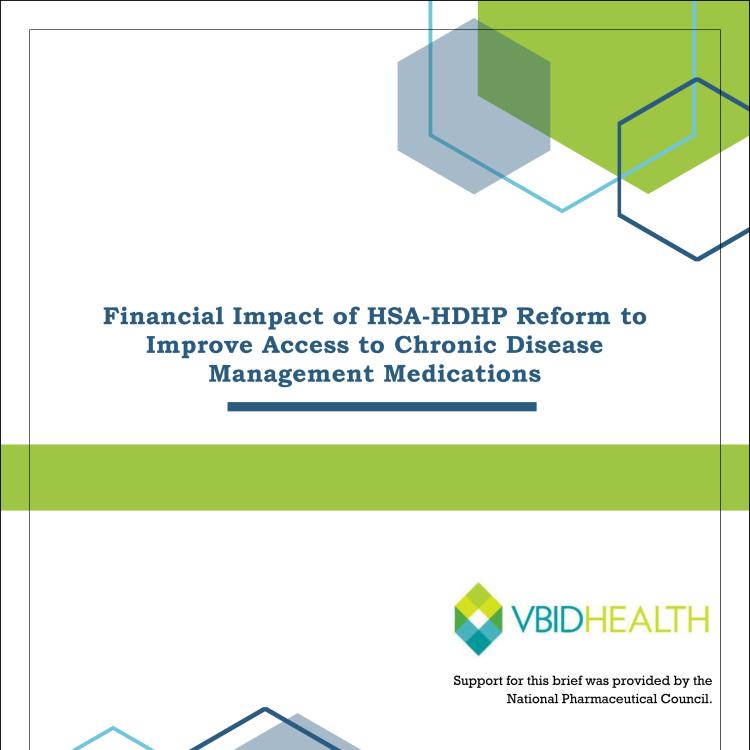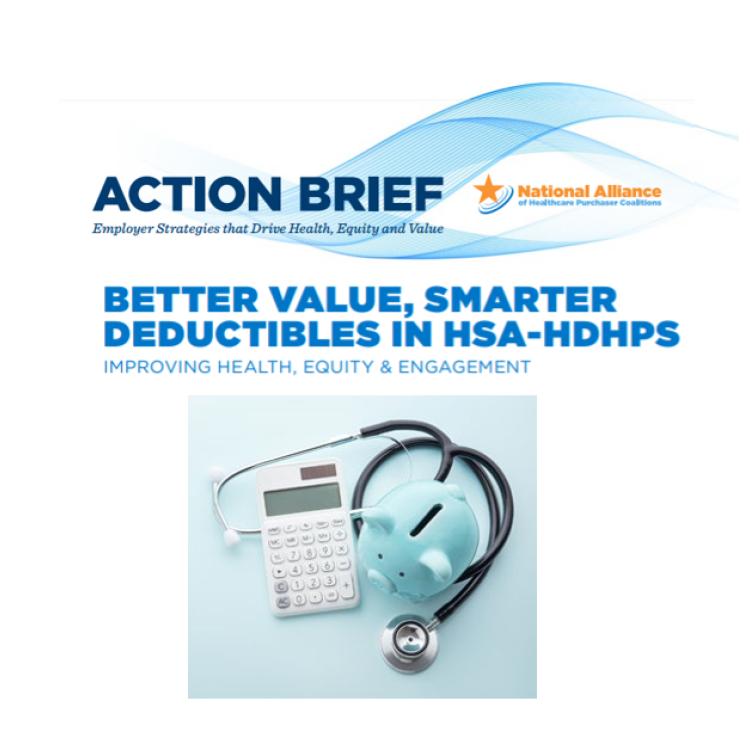A research report out today from the Employee Benefit Research Institute (EBRI) Center for Research on Health Benefits Innovation found that expanding pre-deductible coverage under employer-led health plans would add few costs to health insurance premiums, while lowering costs for patients.
Under current law, Health Savings Account-eligible high-deductible health plans offered by employers have the flexibility to cover 14 medications and other health services used to manage chronic conditions prior to meeting the plan deductible. These medications and services are aimed at treating diabetes, heart disease, asthma, depression and osteoporosis.
Providing coverage before patients meet their deductible eliminates a financial barrier for patients by lowering their out-of-pocket costs and increases utilization of essential medicines, medical devices, and diagnostic tests, ultimately improving health outcomes. Importantly, researchers found that expanding pre-deductible coverage would have little to no impact on premiums, ranging from “virtually nothing to 1.5%.”
The white paper builds on prior research indicating that many employers are already offering expanded pre-deductible coverage and would add more services on a pre-deductible basis if allowed by the IRS. Congress is considering legislation that would allow employers to further increase pre-deductible coverage.
The paper was written by Paul Fronstin, PhD, of EBRI, Christopher Roebuck, PhD, of RxEconomics LLC, and Mark Fendrick, MD, of the University of Michigan, and supported by the National Pharmaceutical Council and other organizations.




